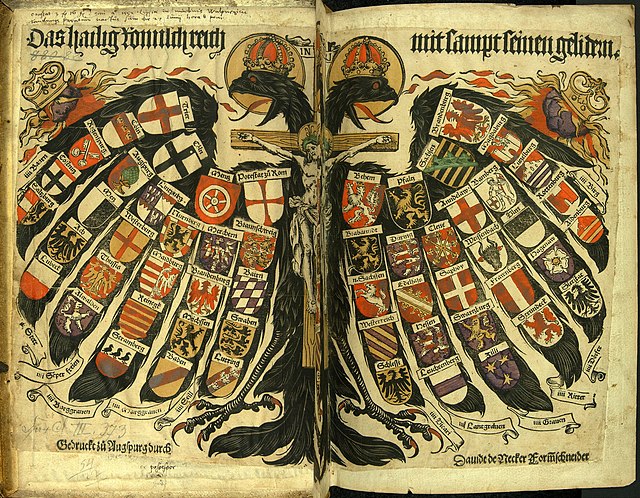Imperial immediacy was a privileged constitutional and political status rooted in German feudal law under which the Imperial estates of the Holy Roman Empire such as Imperial cities, prince-bishoprics and secular principalities, and individuals such as the Imperial knights, were declared free from the authority of any local lord and placed under the direct authority of the Holy Roman Emperor, and later of the institutions of the Empire such as the Diet, the Imperial Chamber of Justice and the Aulic Council.
The Prince-Bishop of Liège, member of the Imperial estates, enjoyed Imperial immediacy and therefore could negotiate and sign international treaties on his own, as long as they were not directed against the Emperor and the Empire.
An Imperial State or Imperial Estate was a part of the Holy Roman Empire with representation and the right to vote in the Imperial Diet. Rulers of these Estates were able to exercise significant rights and privileges and were "immediate", meaning that the only authority above them was the Holy Roman Emperor. They were thus able to rule their territories with a considerable degree of autonomy.
Seating order of the Perpetual Diet of Regensburg (1663 engraving)
A "Quaternion Eagle" (each quaternion being represented by four coats of arms on the imperial eagle's remiges) Hans Burgkmair, c. 1510. Twelve quaternions are shown, as follows (eight dukes being divided into two quaternions called "pillars" and "vicars", respectively): Seill ("pillars"), Vicari ("vicars"), Marggraven (margraves), Lantgraven (landgraves), Burggraven (burggraves), Graven (counts), Semper freie (nobles), Ritter (knights), Stett (cities),



